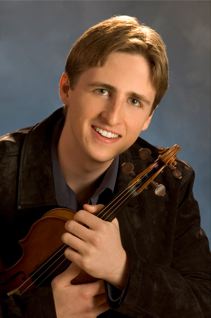|
Symphony
SRS SEASON ENDS WITH RESOUNDING TA-TA-TA-BANG
by Terry McNeill
Sunday, June 1, 2025
Symphony
YOUTHFUL VIRTUOSITY ON DISPLAY AT USO'S MAY CONCERTS
by Peter Lert
Saturday, May 17, 2025
Symphony
MYSTICAL PLANETS AND LIVELY GERSHWIN ORTIZ AT FINAL SRS CONCERT
by Peter Lert
Sunday, May 4, 2025
Symphony
VSO'S CONCERT MUSIC OF TIME, MUSIC OF PLACE
by Peter Lert
Sunday, April 27, 2025
Choral and Vocal
VOCAL ELEGANCE AND FIRE AT THE 222'S RECITAL APRIL 26
by Pamela Hicks Gailey
Saturday, April 26, 2025
CANTIAMO SONOMA SINGS AN INSPIRED GOOD FRIDAY MOZART REQUIEM CONCERT
by Pamela Hicks Gailey
Friday, April 18, 2025
DRAMATIC SHOSTAKOVICH SYMPHONY CLOSES PHILHARMONIC'S 25TH SEASON
by Terry McNeill
Sunday, April 13, 2025
LARGE COLLEGE OF MARIN AUDIENCE GREETS STOPHER ARTISTRY
by Terry McNeill
Saturday, April 5, 2025
Chamber
FRISSON DELIVERS SHIVERS OF DELIGHT
by Abby Wasserman
Sunday, March 30, 2025
OLD AND MOSTLY NEW IN SRS MARCH CONCERT IN WEILL
by Peter Lert
Saturday, March 22, 2025
|
 |
 Violinist David McCarroll |
BRINGING NOTES TO SHIMMERING LIFE
by Terry McNeill
Sunday, January 18, 2015
David McCarroll and Roy Bogas opened the 2015 “Sundays at Schroeder” series at the Green Music Center Jan. 18 in a recital that featured admirable virtuosity and a provocative repertoire.
They began with Mozart’s two-movement E Minor Sonata, K. 304. The work is at turns is sinister and tranquil, and the two artists played a modest “question and answer” with many forte and piano contrasts. The elegant final phrases in the Tempo di Minuetto reflected the striking thematic development they were able to generate from the many modulations and melodic dissimilarities.
The afternoon’s moat penetrating playing came in a performance of Bach's D Minor Partita, BWV 1004, for solo violin. I had not heard an extended solo violin piece in Schroeder Hall, and the sound had a distinctive timbre and ringing clarity. Judicious tempos, even in the fleet Gigue, were Mr. McCarroll’s choice, and they worked well. Some might have preferred more lift in the dance movements, but the violinist focused primarily on one tempo per movement with only subtle variation. He used subdued vibrato and spun long pianissimo phrases during the plaintive lament of the Sarabande.
Performances of the Second Partita tend to be judged on how the Chaconne unfolds, and Mr. McCarroll’s reading was masterful. He had full command of the high notes and the frequent double stops, and his bow control achieved sections of captivating pianissimo playing. He met Bach's formidable technical demands at every turn, ultimately generating a boisterous standing ovation from the jammed hall.
Mr. McCarroll's performance in some ways made one wish not to have a piano return to the stage. But in the Prokofiev F Minor Sonata, Op. 80, Mr. Bogas’ instrument returned with a vengeance. Prokofiev’s string works have inexhaustible inventiveness, fantasy and occasional tender lyricism, but in initial comments to the audience Mr. Bogas stressed the dark nature of the 1946 work and his individual preference for the wandering and bucolic third movement (Andante).
Playing from score, Mr. McCarroll fostered the severe opening section as a kind of tentative introduction to the raucous Allegro Brusco. Secure intonation is key here, and his control of pitch was precise. But in a strange way the Sonata favors the piano, and Mr. Bogas was a solid partner throughout, making a wash of sound when needed and deftly accommodating his sonority in the unison sections to the violin’s line.
The finale in this marvelous recital was a barnburner, Ravel’s over-the-top homage to the gypsy violin – Tsigane. In less than ten minutes Mr. McCarroll brought into play a bevy of slides, off-beat accents, off-pitch notes and stylistic surprises that were an aural feast.
Naturally Tsigane brought down the house and led to a serene encore, Arthur Hartmann’s arrangement from Debussy’s piano prelude “Girl with the Flaxen Hair.” It was lovely to hear Mr. McCarroll bringing notes from inaudibility to shimmering life, akin to the famous Heifetz performances of the work. Praise can go no higher.
|
